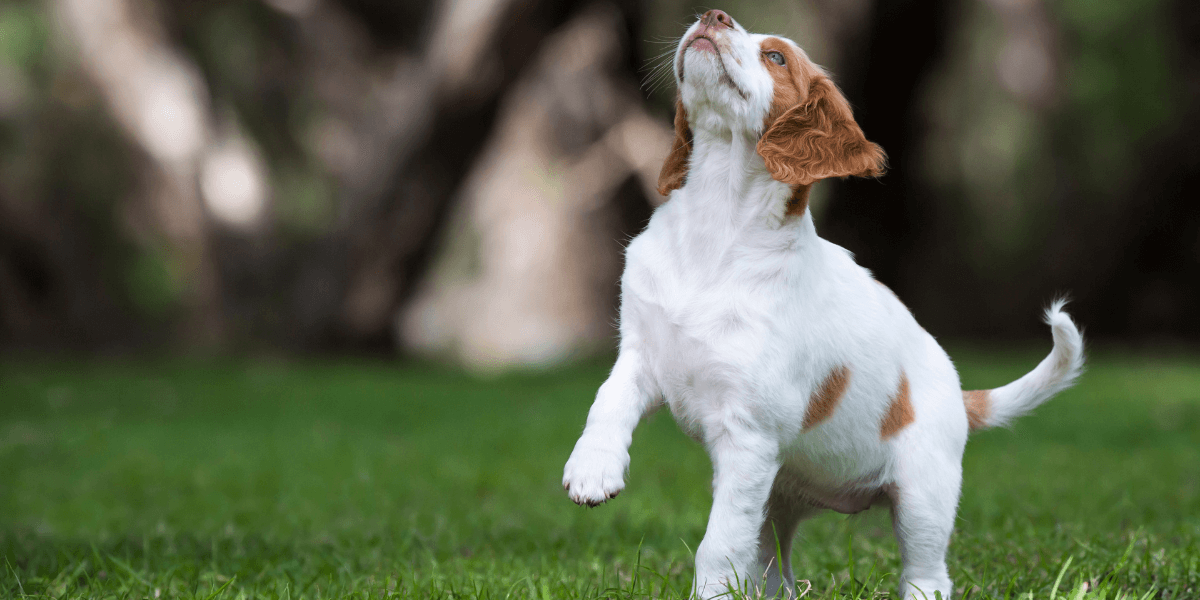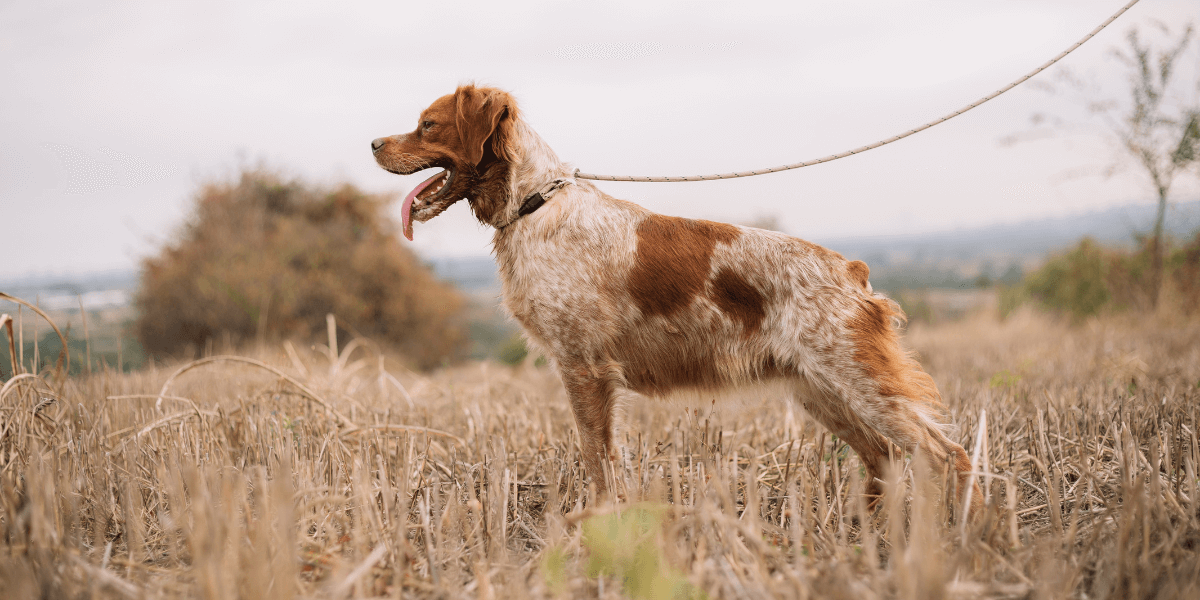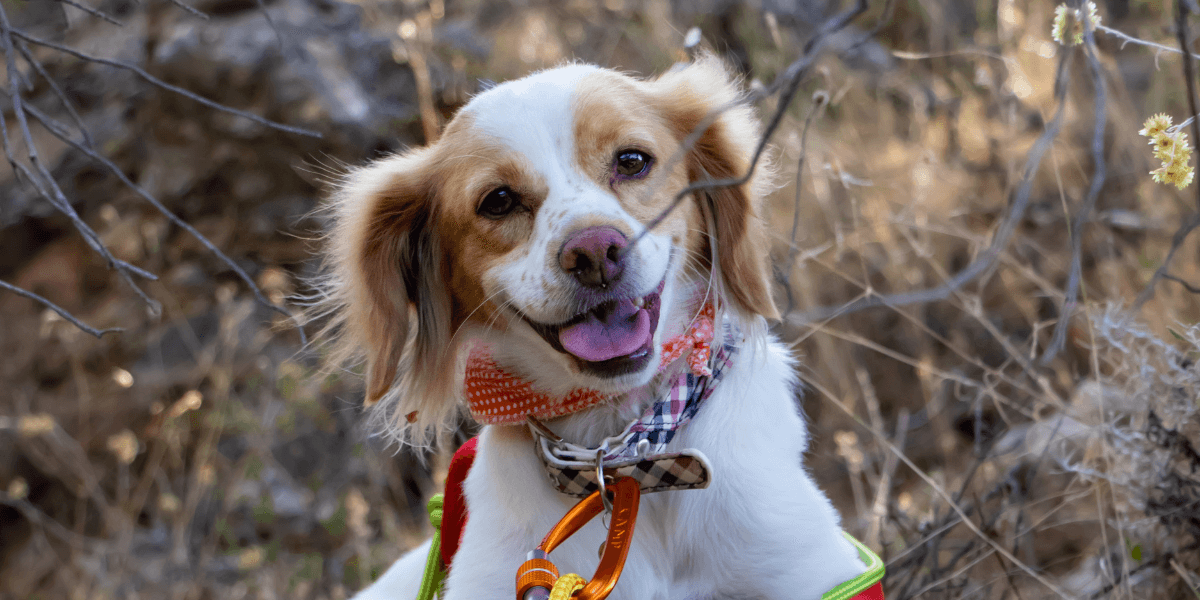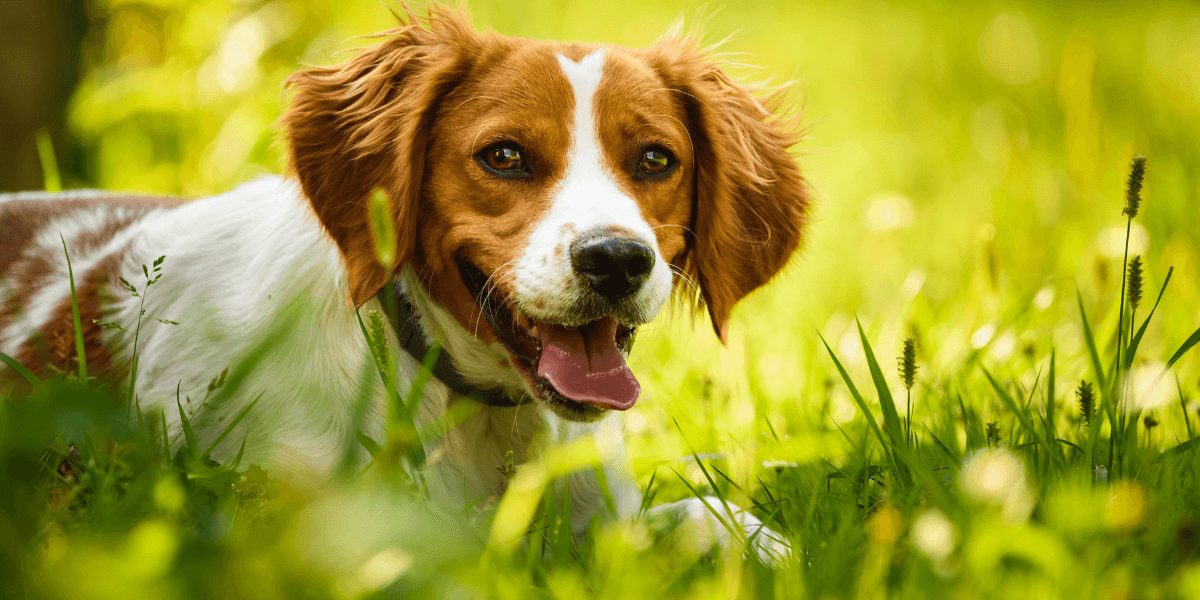Introduction
Brittany Spaniel are energetic, versatile dogs known for their hunting skills.
- They are affectionate and make great family pets, thriving on human companionship
- Originally bred for bird hunting in France, Brittanys are agile and intelligent
- This breed is adaptable, excelling in various canine sports and activities
- Brittanys are medium-sized dogs with distinctive, expressive eyes and soft coats
- They require regular exercise and mental stimulation to stay happy and healthy
1. History and Origin

Explore Brittany's rich history as a bird-hunting dog in France.
- Origins: Brittanys originated in the Brittany region of France
- Recognition: Recognized by the American Kennel Club in 1934
- Development: Bred for their hunting prowess and keen sense of smell
- Popularity: Gained popularity in the US in the mid-20th century
- Traits: Valued for their versatility and adaptability in the field
2. Physical Characteristics

Discover the distinct appearance and build of the Brittany.
- Size: Medium-sized breed, usually 30 to 40 pounds
- Coat: Soft, wavy coat in orange and white or liver and white colors
- Eyes: Expressive, almond-shaped eyes that convey intelligence
- Ears: Ears are set high and are relatively short compared to other breeds
- Tail: Docked tail or naturally short, adding to their agile appearance
3. Personality and Temperament

Learn about Brittany's friendly and energetic demeanor.
- Energetic: Known for their boundless energy and enthusiasm
- Intelligent: Quick learners, excelling in obedience and agility training
- Affectionate: Thrive on human companionship and enjoy being close to family
- Social: Generally friendly with children, other dogs, and pets
- Adaptable: Suited for various lifestyles but need regular exercise
4. Training and Behavior

Effective training tips for raising a well-mannered Brittany.
- Consistency: Consistent training is key to managing their high-energy
- Rewards: Positive reinforcement works best for this eager-to-please breed
- Socialization: Early socialization helps prevent shyness or anxiety
- Activities: Engage them in sports like agility, obedience, or flyball
- Challenges: Can become destructive without enough physical activity
Enhance your Brittany's training by exploring techniques from Great Dane Training for a well-behaved companion.
5. Health and Wellness

Keep your Brittany Spaniels in top shape with these essential health tips.
- Vet Visits: Regular vet check-ups are crucial for early detection of issues
- Common Issues: Prone to hip dysplasia, ear infections, and epilepsy
- Diet: A balanced diet helps maintain their energy levels and coat condition
- Exercise: Needs at least an hour of exercise daily to stay healthy
- Grooming: Regular brushing and ear cleaning prevent infections
6. Living with a Brittany Spaniel

Tips for creating a happy and comfortable home environment for your Brittany.
- Space: They thrive in homes with space to run and play
- Indoor Life: Can adapt to indoor living if provided ample exercise
- Family Life: Loyal companions who integrate well into family settings
- Interaction: Requires mental stimulation through games and activities
- Travel: Enjoys traveling and exploring new places with their owners
Learn from Bernese Mountain Dogs and Family Life to ensure your Brittany thrives with kids and other pets.
7. Choosing a Brittany Spaniel

Key considerations when selecting a Brittany as your new pet.
- Breeder: Choose a reputable breeder or consider adopting from a rescue
- Temperament: Look for a temperament that matches your lifestyle
- Activity Level: Ensure you can meet their exercise and mental needs
- Health Records: Verify health records and any genetic testing of the parents
- Commitment: Be ready for a long-term commitment as they can live 12-15 years
Compare breeds in Bernese Mountain Dog vs Newfoundland to make an informed choice when selecting your Brittany.
FAQs
1. What is the Brittany Spaniel’s origin?
- The Brittany originated in France, specifically in the Brittany region
2. How much exercise does Brittany need daily?
- Brittanys require at least an hour of exercise each day to stay healthy
3. Are Brittany Spaniels good with kids
- Yes, they are friendly and generally do well with children and other pets
4. Does Brittany Spaniels shed a lot?
- They have moderate shedding, and regular grooming helps manage it
5. What health issues are common in Brittanys?
- Brittanys may face hip dysplasia, epilepsy, and ear infections
Conclusion
- Brittany Spaniels are energetic, intelligent, and affectionate dogs
- They make great companions for active families and individuals
- Regular training, exercise, and socialization are essential for them
- Keep up with grooming and vet visits for a healthy, happy pet
- Consider adopting a Brittany if you're ready for an active lifestyle
- Start your journey with a Brittany by visiting a local breeder or rescue



